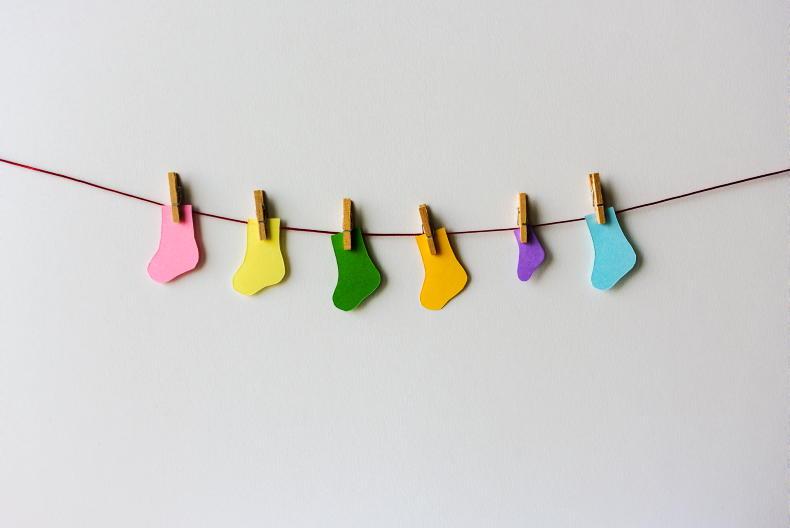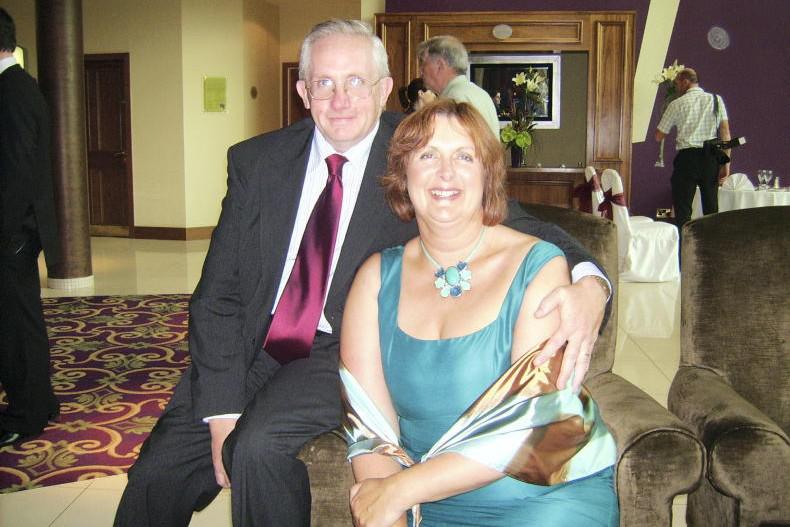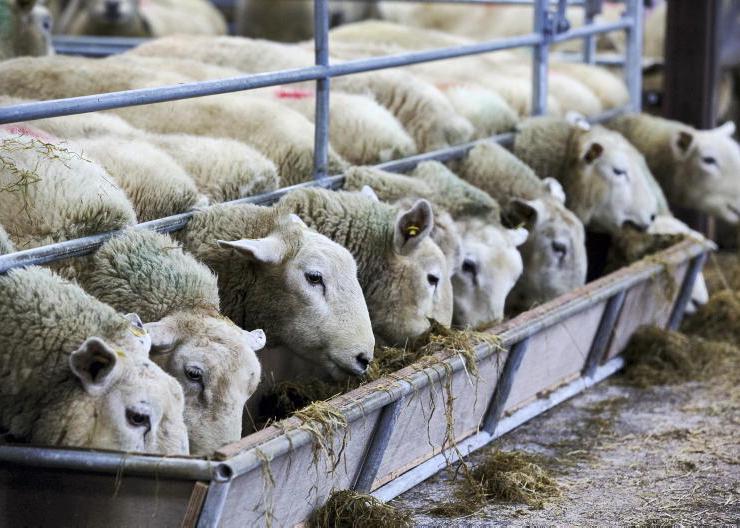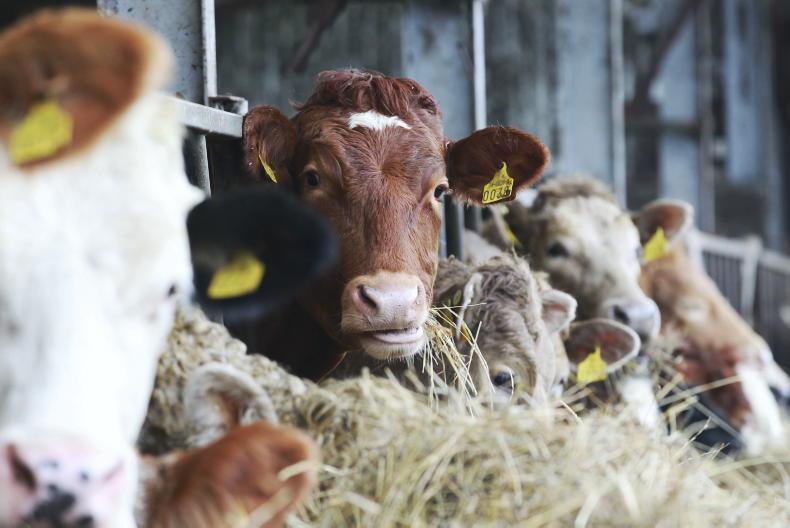Mary and John* live on a dairy farm and have always wanted children. But in the five years that they have been trying for a family, they have also suffered five losses; including their twin girls that were due via surrogate this October.
In advance of Pregnancy & Infant Loss Awareness Day on 15 October, Mary shares her journey of heartbreak; but also of how she has not given up hope.
“It’s the garden without the swing set. The blank wall where our family photos should be. The mammy’s wellies, the daddy’s wellies; but still no baby’s wellies. That’s what pregnancy loss is to me.
“Children were always in the picture for myself and John. We have a home, ready and waiting. When we got engaged, he was in his early 40s and I was in my late 30s, so we started trying straight away and in August 2015, I became pregnant.
“The night before our 12-week scan, I felt a bit of discomfort, but I didn’t have any bleeding. We rang the hospital and they just said take two Paracetamol, rest and come in for your appointment at 11am. I was very innocent. I was absolutely sure they were going to say, ‘Everything is fine’. When they said there was no heartbeat, I nearly died.
“They said something like, ‘It’s your first pregnancy, and miscarriage is so common’. I suppose they can’t help but be clinical. But I was so shocked and grieved. I wanted my baby so badly; it was like craving a drug.”
Loss after loss
“We decided to try again, and I became pregnant in February. I lost that baby in April, the same week the first baby was due. I was heartbroken. We asked about testing, but were told we would have to have three recurrent miscarriages before they would investigate. I said, ‘There’s no way I’m going to let another baby die before you do tests’ so we just went privately, but nothing showed up.
“Just before Christmas 2016, I became pregnant with my third baby, but when we went for an early scan, there was no heartbeat.

Twins Evelyn and Sophie were due this October
“For some people, it’s just a ‘miss’, but it affected me so deeply. With early losses, you don’t have any remains- you don’t have anything – but I framed all the scans and put their names, Anna, Harry and Patrick, underneath. I can’t live in a world where they aren’t remembered.
“Sometimes, I couldn’t understand how the world was going on so normally when such a big thing had happened. I have been so angry and so sad at times. If I saw somebody pregnant, I couldn’t even talk about it for a while. The waves of sadness and jealousy. Why us?

Twins Evelyn and Sophie were due this October
“We were basically told to go home and try again. In autumn 2017, I was put on fertility medication, but it triggered me into a bit of a depression. Trying to conceive after losses and when on medication puts enormous strain on a relationship. And you have to remember, the farm does not stop just because this is happening. And because it’s a farm, that adds a little bit of extra pressure over the years; having someone to pass it on to.”
The surrogacy journey
“In 2018, we went to a fertility clinic. I already had my AMH (anti-mullerian hormone that can indicate ovarian reserve) level tested and it was very low. When I told the doctor what my egg count was, she said we needed to think about egg donation. I’m very open-minded so I said, ‘That’s fine’. But after the first two transfers failed, they did some more blood tests that revealed that basically, my body was rejecting the pregnancies. That was so hard to hear because I had to start accepting that I would not be able to carry my own child. However, we knew we wanted a family, and we’re lucky that we’re in the position that we could look at surrogacy.
“We started researching options in the US, Canada, Greece and Ukraine, but opted for Georgia. We met a solicitor for an introduction into the legal side, but everything else was self-led and we travelled in September 2019. Surrogacy can look very formal, but for people like me, it’s not a business transaction. No matter how they’re created, they are our babies.
After Christmas, we chose our second surrogate, Ana
“There was a lot of paperwork because we were using John’s sperm, an egg donor and then a separate surrogate. The first time, however, the clinic got just one embryo and after transfer, there was no pregnancy. That really crushed us because when you’ve gone through so much already, you really think surrogacy is the golden egg.
“Our saving grace was that John had left a sperm sample with the clinic, and next time, we got 14 embryos. After Christmas, we chose our second surrogate, Ana. We transferred two embryos and in March, found out we were pregnant; with twins. God, it was brilliant.
I decided I would finally start buying baby stuff. I also wrote to Ana and sent photographs
“By then, COVID-19 had started and they were in lockdown also, but the clinic kept us up to date with scan pictures and everything was progressing really well. We found out we were expecting girls. After the anomaly scan (20 weeks), I decided I would finally start buying baby stuff. I also wrote to Ana and sent photographs, saying, ‘This is our farm and this is our dog and this is our family and this is where the girls will grow up’ and thanking her for looking after them. I considered her part of our family.”
Our world falls apart
“It was the first Monday in July. We were 24 weeks that day. I was visiting my sister and we were getting ready to go to the beach. Before we left, I happened to look at my phone and saw an email that Ana had been feeling unwell, so she had gone to the clinic and then been transferred to the hospital.
John could not talk. I don’t know where I got the strength to
“I drove straight home. I don’t know how. John was in the milking parlour; he went as white as a ghost when I told him to come inside. We sat at the kitchen table and waited for the call to come from our co-ordinator. She rang us on WhatsApp and told us that Ana had gone into early labour; and the girls had been stillborn. John could not talk. I don’t know where I got the strength to.
“The girls had died; but we were thousands of miles away, in a pandemic, and we couldn’t get on a plane and go out there. We chose Sophie and Evelyn for their names.
“Only for the Consulate, I don’t know what I would have done. He arranged to have a little coffin made, the plot, the minister, the paperwork. It took three weeks. I remember the night before the funeral, ringing him to say, ‘Would you mind saying a prayer in Irish?’ Just to have some connection to home.
“In the first few weeks, I had to write a list of basic things to do each day because I felt I had nothing to get up for. Literally, ‘Feed the cat, feed the dog, have a shower, have breakfast, go for a little walk’. It was so simple.
My girls
“The girls were due on 18 October. I don’t know if the reality has hit me yet. I think maybe because it’s happening so far away I think that they’re almost still there. I don’t know how to explain it. Because it was surrogacy, people might think that you’re removed from it, but I cannot imagine loving those girls any more if I was carrying them myself. They are my girls.
“In one of our fields, there’s a very old graveyard and a lovely granite piece that was put up a few years ago in memory of all the little children. Yesterday morning I picked wild flowers and some acorns and oak leaves and I put them in a jar at the base of that. For now, that’s my pilgrimage to remember them. I know their bodies are in Georgia; but their souls are here with me.
“Looking to the future, we are fortunate that we have the option of another transfer without having to go through egg collection, but with COVID-19 there has been a temporary ban on embryo transfers, so we’re waiting. We’re always waiting. That’s what it feels like. On darker days, I’ve thought, ‘How am I going to live through another year of this?’ We’ve even had a discussion of when we should stop. You can’t physically or mentally or emotionally keep taking hits like this.
“But I have to believe that our babies are there, waiting for us. Waiting to come home to us.”
In loving memory of Sophie, Evelyn, Anna, Patrick and Harry.
*Names changed for anonymity.
If you have been affected by pregnancy or infant loss, you can find a full list of support organisations at www.pregnancyandinfantloss.ie
In honour of Pregnancy and Infant Loss Awareness Day on Thursday 15 October, Irish charity Féileacáin have organised for buildings around Ireland to be lit up in blue and pink to remember all babies gone too soon. For a full list of buildings, follow “Féileacáin Wave of Light” on Facebook or take part by lighting a candle and posting a photo to social media using #Feileacainwaveoflight
Mary and John* live on a dairy farm and have always wanted children. But in the five years that they have been trying for a family, they have also suffered five losses; including their twin girls that were due via surrogate this October.
In advance of Pregnancy & Infant Loss Awareness Day on 15 October, Mary shares her journey of heartbreak; but also of how she has not given up hope.
“It’s the garden without the swing set. The blank wall where our family photos should be. The mammy’s wellies, the daddy’s wellies; but still no baby’s wellies. That’s what pregnancy loss is to me.
“Children were always in the picture for myself and John. We have a home, ready and waiting. When we got engaged, he was in his early 40s and I was in my late 30s, so we started trying straight away and in August 2015, I became pregnant.
“The night before our 12-week scan, I felt a bit of discomfort, but I didn’t have any bleeding. We rang the hospital and they just said take two Paracetamol, rest and come in for your appointment at 11am. I was very innocent. I was absolutely sure they were going to say, ‘Everything is fine’. When they said there was no heartbeat, I nearly died.
“They said something like, ‘It’s your first pregnancy, and miscarriage is so common’. I suppose they can’t help but be clinical. But I was so shocked and grieved. I wanted my baby so badly; it was like craving a drug.”
Loss after loss
“We decided to try again, and I became pregnant in February. I lost that baby in April, the same week the first baby was due. I was heartbroken. We asked about testing, but were told we would have to have three recurrent miscarriages before they would investigate. I said, ‘There’s no way I’m going to let another baby die before you do tests’ so we just went privately, but nothing showed up.
“Just before Christmas 2016, I became pregnant with my third baby, but when we went for an early scan, there was no heartbeat.

Twins Evelyn and Sophie were due this October
“For some people, it’s just a ‘miss’, but it affected me so deeply. With early losses, you don’t have any remains- you don’t have anything – but I framed all the scans and put their names, Anna, Harry and Patrick, underneath. I can’t live in a world where they aren’t remembered.
“Sometimes, I couldn’t understand how the world was going on so normally when such a big thing had happened. I have been so angry and so sad at times. If I saw somebody pregnant, I couldn’t even talk about it for a while. The waves of sadness and jealousy. Why us?

Twins Evelyn and Sophie were due this October
“We were basically told to go home and try again. In autumn 2017, I was put on fertility medication, but it triggered me into a bit of a depression. Trying to conceive after losses and when on medication puts enormous strain on a relationship. And you have to remember, the farm does not stop just because this is happening. And because it’s a farm, that adds a little bit of extra pressure over the years; having someone to pass it on to.”
The surrogacy journey
“In 2018, we went to a fertility clinic. I already had my AMH (anti-mullerian hormone that can indicate ovarian reserve) level tested and it was very low. When I told the doctor what my egg count was, she said we needed to think about egg donation. I’m very open-minded so I said, ‘That’s fine’. But after the first two transfers failed, they did some more blood tests that revealed that basically, my body was rejecting the pregnancies. That was so hard to hear because I had to start accepting that I would not be able to carry my own child. However, we knew we wanted a family, and we’re lucky that we’re in the position that we could look at surrogacy.
“We started researching options in the US, Canada, Greece and Ukraine, but opted for Georgia. We met a solicitor for an introduction into the legal side, but everything else was self-led and we travelled in September 2019. Surrogacy can look very formal, but for people like me, it’s not a business transaction. No matter how they’re created, they are our babies.
After Christmas, we chose our second surrogate, Ana
“There was a lot of paperwork because we were using John’s sperm, an egg donor and then a separate surrogate. The first time, however, the clinic got just one embryo and after transfer, there was no pregnancy. That really crushed us because when you’ve gone through so much already, you really think surrogacy is the golden egg.
“Our saving grace was that John had left a sperm sample with the clinic, and next time, we got 14 embryos. After Christmas, we chose our second surrogate, Ana. We transferred two embryos and in March, found out we were pregnant; with twins. God, it was brilliant.
I decided I would finally start buying baby stuff. I also wrote to Ana and sent photographs
“By then, COVID-19 had started and they were in lockdown also, but the clinic kept us up to date with scan pictures and everything was progressing really well. We found out we were expecting girls. After the anomaly scan (20 weeks), I decided I would finally start buying baby stuff. I also wrote to Ana and sent photographs, saying, ‘This is our farm and this is our dog and this is our family and this is where the girls will grow up’ and thanking her for looking after them. I considered her part of our family.”
Our world falls apart
“It was the first Monday in July. We were 24 weeks that day. I was visiting my sister and we were getting ready to go to the beach. Before we left, I happened to look at my phone and saw an email that Ana had been feeling unwell, so she had gone to the clinic and then been transferred to the hospital.
John could not talk. I don’t know where I got the strength to
“I drove straight home. I don’t know how. John was in the milking parlour; he went as white as a ghost when I told him to come inside. We sat at the kitchen table and waited for the call to come from our co-ordinator. She rang us on WhatsApp and told us that Ana had gone into early labour; and the girls had been stillborn. John could not talk. I don’t know where I got the strength to.
“The girls had died; but we were thousands of miles away, in a pandemic, and we couldn’t get on a plane and go out there. We chose Sophie and Evelyn for their names.
“Only for the Consulate, I don’t know what I would have done. He arranged to have a little coffin made, the plot, the minister, the paperwork. It took three weeks. I remember the night before the funeral, ringing him to say, ‘Would you mind saying a prayer in Irish?’ Just to have some connection to home.
“In the first few weeks, I had to write a list of basic things to do each day because I felt I had nothing to get up for. Literally, ‘Feed the cat, feed the dog, have a shower, have breakfast, go for a little walk’. It was so simple.
My girls
“The girls were due on 18 October. I don’t know if the reality has hit me yet. I think maybe because it’s happening so far away I think that they’re almost still there. I don’t know how to explain it. Because it was surrogacy, people might think that you’re removed from it, but I cannot imagine loving those girls any more if I was carrying them myself. They are my girls.
“In one of our fields, there’s a very old graveyard and a lovely granite piece that was put up a few years ago in memory of all the little children. Yesterday morning I picked wild flowers and some acorns and oak leaves and I put them in a jar at the base of that. For now, that’s my pilgrimage to remember them. I know their bodies are in Georgia; but their souls are here with me.
“Looking to the future, we are fortunate that we have the option of another transfer without having to go through egg collection, but with COVID-19 there has been a temporary ban on embryo transfers, so we’re waiting. We’re always waiting. That’s what it feels like. On darker days, I’ve thought, ‘How am I going to live through another year of this?’ We’ve even had a discussion of when we should stop. You can’t physically or mentally or emotionally keep taking hits like this.
“But I have to believe that our babies are there, waiting for us. Waiting to come home to us.”
In loving memory of Sophie, Evelyn, Anna, Patrick and Harry.
*Names changed for anonymity.
If you have been affected by pregnancy or infant loss, you can find a full list of support organisations at www.pregnancyandinfantloss.ie
In honour of Pregnancy and Infant Loss Awareness Day on Thursday 15 October, Irish charity Féileacáin have organised for buildings around Ireland to be lit up in blue and pink to remember all babies gone too soon. For a full list of buildings, follow “Féileacáin Wave of Light” on Facebook or take part by lighting a candle and posting a photo to social media using #Feileacainwaveoflight











SHARING OPTIONS